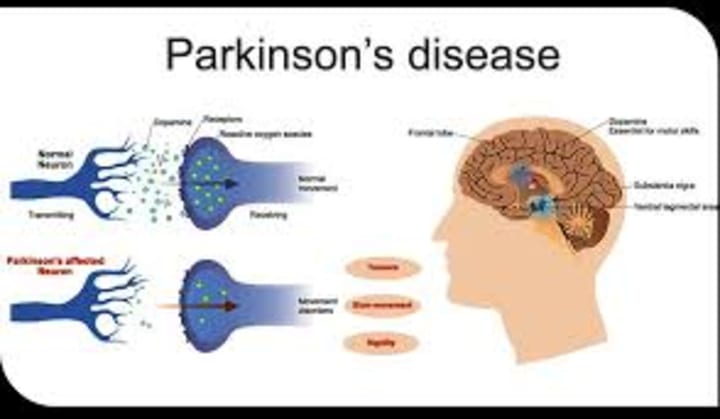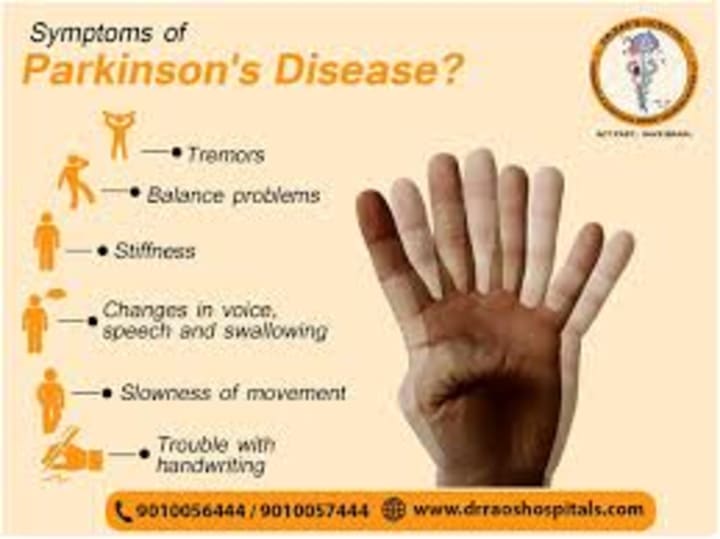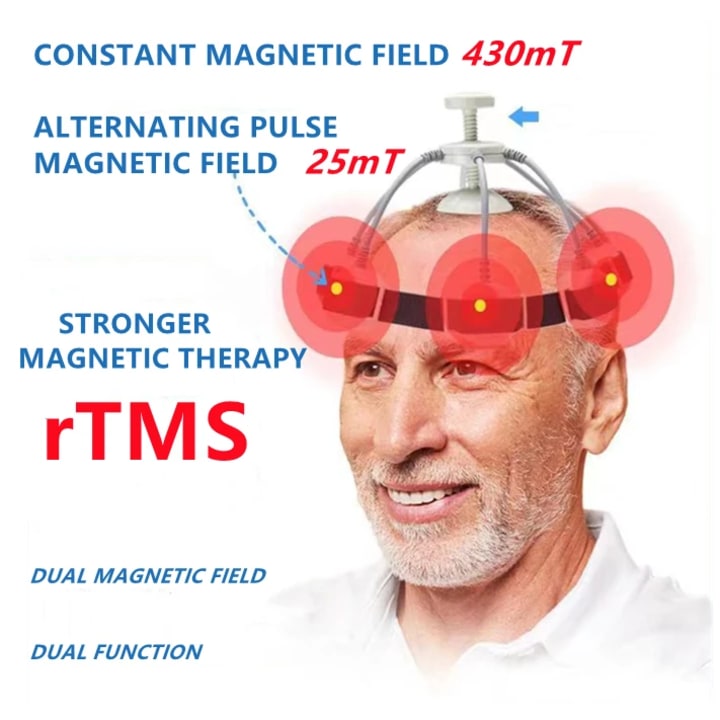Understanding Parkinson's Disease
What is Parkinson's Disease?
Parkinson's disease (PD) is a progressive neurodegenerative disorder that primarily affects movement control. It occurs due to the loss of dopamine-producing neurons in a part of the brain called the substantia nigra. Dopamine, a neurotransmitter crucial for regulating movement, becomes deficient, leading to the hallmark symptoms of Parkinson's.

Symptoms of Parkinson's Disease
Symptoms generally develop gradually, categorized into motor and non-motor symptoms.

Motor Symptoms:
Tremor: Involuntary shaking, often beginning in a hand or fingers.
Bradykinesia: Slowness of movement, making simple tasks difficult and time-consuming.
Rigidity: Stiffness in the limbs and trunk, leading to reduced range of motion and discomfort.
Postural Instability: Impaired balance and coordination, increasing the risk of falls.
Non-Motor Symptoms:
Cognitive Impairment: Difficulty with memory, attention, and problem-solving.
Mood Disorders: Depression, anxiety, and apathy.
Sleep Disturbances: Insomnia, restless legs syndrome, and REM sleep behavior disorder.
Autonomic Dysfunction: Issues with blood pressure regulation, bladder control, and digestion.
Causes and Risk Factors
The exact cause of Parkinson's disease remains unknown, but both genetic and environmental factors are believed to contribute. Known risk factors include:
Age: The risk increases with age, typically affecting individuals over 60.
Gender: Men are more likely to develop Parkinson's than women.
Family History: Having a close relative with Parkinson's increases the risk.
Exposure to Toxins: Prolonged exposure to herbicides and pesticides has been linked to a higher risk.
Famous People with Parkinson's Disease
Several well-known individuals have publicly shared their experiences with Parkinson's, raising awareness and funds for research.
Michael J. Fox
Actor Michael J. Fox, best known for his role in the "Back to the Future" series, was diagnosed with Parkinson's in 1991 at the age of 29. He founded the Michael J. Fox Foundation for Parkinson's Research, which has become the largest nonprofit funder of Parkinson's drug development in the world.
Muhammad Ali
The legendary boxer Muhammad Ali was diagnosed with Parkinson's in 1984. His public battle with the disease, combined with his charismatic personality, brought significant attention to Parkinson's and inspired many.
Linda Ronstadt
Grammy Award-winning singer Linda Ronstadt revealed in 2013 that she could no longer sing due to Parkinson's. Her diagnosis highlighted the impact of the disease on the performing arts community.
Managing Parkinson's Disease
While there is currently no cure for Parkinson's, various treatments and lifestyle changes can help manage symptoms and improve quality of life.

Medications
Levodopa: The most effective medication for controlling motor symptoms. It is often combined with carbidopa to enhance its effectiveness and reduce side effects.
Dopamine Agonists: Mimic dopamine effects in the brain and can be used alone or with levodopa.
MAO-B Inhibitors: Help prevent the breakdown of brain dopamine, prolonging its action.
Surgical Treatments
Deep Brain Stimulation (DBS): A surgical procedure that involves implanting electrodes in the brain. These electrodes deliver electrical impulses that can help reduce motor symptoms.

Lifestyle Changes
Exercise: Regular physical activity can improve flexibility, strength, and balance. Activities such as walking, swimming, and yoga are beneficial.
Nutrition: A balanced diet rich in fruits, vegetables, whole grains, and lean proteins supports overall health. Some studies suggest that a Mediterranean diet may have additional benefits for brain health.
Therapies: Physical, occupational, and speech therapies can address specific challenges related to movement, daily activities, and communication.
Support and Education
Support Groups: Joining a support group provides emotional support and practical advice from others living with Parkinson's.
Education: Staying informed about the disease helps patients and caregivers make informed decisions about treatment and care.
Conclusion
Parkinson's disease is a complex condition that poses significant challenges. However, with appropriate management and support, individuals can lead fulfilling lives. Ongoing research, increased awareness, and the contributions of those affected by Parkinson's continue to drive progress toward better treatments and, ultimately, a cure.
About the Creator
David Snam
Greetings, I'm David Snam, a passionate storyteller weaving narratives that resonate with the heart and mind. My tales blend the surreal with the everyday, inviting you to explore worlds where the ordinary transforms into the extraordinary.
Enjoyed the story? Support the Creator.
Subscribe for free to receive all their stories in your feed. You could also pledge your support or give them a one-off tip, letting them know you appreciate their work.






Comments
There are no comments for this story
Be the first to respond and start the conversation.